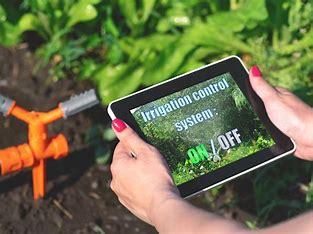In an era where sustainability and resource conservation are paramount, smart irrigation systems have emerged as a game-changer in the field of agriculture and landscaping. In this post, we explore the innovative technology behind smart irrigation systems, highlighting their ability to optimize water usage, promote plant health, and enhance overall efficiency. Discover how these intelligent systems are revolutionizing the way we irrigate and cultivate our landscapes.

- Understanding Smart Irrigation Systems: Delve into the concept of smart irrigation systems and how they differ from traditional irrigation methods. Learn about the integration of sensors, weather data, and automation, which allows for precise and targeted watering based on plant needs and environmental conditions.
- Efficient Water Usage: Explore how smart irrigation systems optimize water usage by monitoring soil moisture levels in real-time. Discover how these systems can adjust watering schedules and durations to prevent overwatering and conserve water resources, leading to significant water savings.
- Weather-Based Irrigation: Uncover the power of weather data in smart irrigation systems. Learn how these systems leverage weather forecasts and local climate information to adjust watering schedules automatically. By avoiding unnecessary watering during periods of rain or high humidity, smart irrigation systems ensure water is used efficiently.
- Remote Control and Monitoring: Discover the convenience of remote control and monitoring features in smart irrigation systems. Explore how users can easily adjust irrigation settings or detect malfunctions through smartphone apps or web interfaces, providing greater control and ensuring optimal system performance.
- Promoting Plant Health: Learn how smart irrigation systems contribute to plant health and vitality. By delivering water based on the specific needs of plants, these systems prevent both underwatering and overwatering, minimizing the risk of diseases caused by improper watering practices. Explore the positive impact this has on plant growth and yields.
- Cost Savings and Sustainability: Unveil the economic and environmental benefits of smart irrigation systems. Explore how reduced water usage leads to cost savings for agricultural operations and landscaping projects. Discover how these systems contribute to sustainable practices by conserving water resources and promoting responsible water management.
- Integration and Scalability: Discuss the flexibility and scalability of smart irrigation systems. Explore how these systems can be integrated with other smart technologies, such as soil moisture sensors, weather stations, and central control systems, creating a holistic and efficient irrigation infrastructure.
Leave a Reply